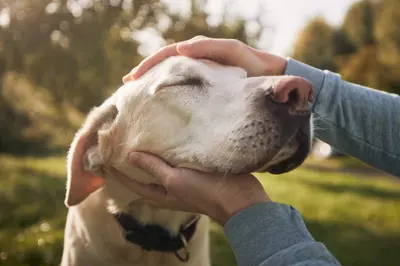Stress Mastery

More resources
Try an online course
 The same people who created this website have also created a 6-week online course that has lots of good information and strategies for addressing stress. It's called Mindfulness at Work, but is completely relevant to all parts of your life.
The same people who created this website have also created a 6-week online course that has lots of good information and strategies for addressing stress. It's called Mindfulness at Work, but is completely relevant to all parts of your life.
We also offer weekly hour long Mindful Mondays for free via Zoom over the lunch hour.
References and Additional Resources
The following sites and print sources offer more information. Many of these provided evidence for the information in this section.
Websites
American Psychological Association - Stress in the Workplace
http://www.apa.org/helpcenter/workplace-stress.aspx
Canada's National Occupational Health & Safety Resource http://www.ccohs.ca/oshanswers/psychosocial/stress.html
Meditation Society of America http://www.meditationsociety.com/
National Institute of Occupational Safety and Health http://www.cdc.gov/niosh/topics/stress
Wildmind Buddhist Meditation - Understanding Stress http://www.wildmind.org/applied/stress/understanding-stress
Books and articles
Benson, H. (1993). The relaxation response. In Mind body medicine. Goleman, D., Gurin, J. (ed). New York: Consumer Reports Books, 233-257.
Boghosian Arden, J. (2002). Surviving Job Stress: How to Overcome Workday Pressures. Career Press.
Bringslimark, T., Patil, G., & Hartig, T. (2008). The Association Between Indoor Plants, Stress, Productivity and Sick Leave In Office Workers. Acta Horticulturae; 775, 117.
Brydon, L., Walker, C., Wawrzyniak, A.J., Chart, H., Steptoe, A. (2009). Dispositional optimism and stress-induced changes in immunity and negative mood. Brain, Behavior, and Immunity; 23(6):810-6.
Carter, S.B. (March 14, 2012). Why Mess Causes Stress: 8 Reasons, 8 Remedies. Psychology Today. Retrieved March 29, 2013 from http://www.psychologytoday.com/blog/high-octane-women/201203/why-mess-causes-stress-8-reasons-8-remedies.
Christakis, N. A. (2010). TED TALK: The hidden influence of social networks. Retrieved from http://www.youtube.com/watch?v=2U-tOghblfE
Davis, M., McKay, M., Eshelman, E.R. (2000). The relaxation & stress reduction workbook. New Harbinger Publications.
Emmons, H. (2010). The chemistry of calm. New York: Touchstone.
Endredy, J., Sanchez, V. (2002). Earthwalks for body and spirit. Bear & Company.
Epel, E., Blackburn, E., Lin, J., Dhabhar, F.S., Adler, N.E., Morrow, J.D., Cawthon, R.M. (2004). Accelerated telomere shortening in response to life stress. Proceedings for the National Academy of Sciences of the U.S.; 101(49): 17312–17315.
Epel, E.S., Lin, J., Dhabhar, F.S., Wolkowitz, O.M., Puterman, E., Karan, L., Blackburn, E.H. (2010). Dynamics of telomerase activity in response to acute psychological stress. Brain, Behavior, and Immunity; 24(4):531-9.
Everly, G. S., Lating, J.M. (2012). A clinical guide to the treatment of the human stress response. New York: Springer.
Hamer, M., Kivimaki, M., Stamatakis, E., Batty, G.D. (2012). Psychological distress as a risk factor for death from cerebrovascular disease. Canadian Medical Association Journal; 184(13): 1461–1466.
Hudson, J. (1998). Instant meditation for stress relief: Breathing techniques and mental exercises for an immediate sense of calm and well-being (The New Life Library Series). Lorenz Books.
Jamieson, J.P., Nock, M.K., Mendes, W.B. (2012). Mind over matter: reappraising arousal improves cardiovascular and cognitive responses to stress. J Exp Psychol Gen; 141(3), 417-22.
Kabat-Zinn, J. (1991). Full catastrophe living: Using the wisdom of your body and mind to face stress, pain, and illness. New York: Delacorte Books.
Keller, A., Litzelman, K., Wisk, L.E., Maddox, T., Cheng, E.R., Creswell, P.D., Witt, W.P. (2012). Does the perception that stress affects health matter? The association with health and mortality. Health Psychology; 31(5), 677-84.
Lazarus, J. (2000). Stress relief & relaxation techniques. McGraw-Hill.
Lewis, D. (2004). Free your breath, free your life: How conscious breathing can relieve stress, increase vitality, and help you live more fully. Shambhala.
Losyk, B. (2004). Get a grip!: Overcoming stress and thriving in the workplace. John Wiley & Sons.
Moore, L.J., Vine, S.J., Wilson, M.R., Freeman, P. (2012). The effect of challenge and threat states on performance: An examination of potential mechanisms. Psychophysiology; 49(10), 1417-25.
Neff, L.A. & Karney, B.R. (2009). Stress and reactivity to daily relationship experiences: How stress hinders adaptive processes in marriage. Journal of Personality and Social Psychology, 97(3), 435-450.
Potter, A. (2001). The positive thinker's 10 commandments: For a happier, healthier, more successful you. Berkley Publishing Group.
Rath, T. & Harter, J. (2010). Wellbeing: The five essential elements. New York: Gallup Press.
Richardson, S., Shaffer, J.A., Falzon, L., Krupka, D., Davidson, K.W., Edmondson, D. (2012) Meta-analysis of perceived stress and its association with incident coronary heart disease. The American Journal of Cardiology; 110(12), 1711-1716.
Seligman, M. (2006). Learned optimism: How to change your mind and your life. New York: Pocket Books.
Serra, D., Parris, C.R., Carper, E., Homel, P., Fleishman, S.B., Harrison, L.B., Chadha, M. (2012). Outcomes of guided imagery in patients receiving radiation therapy for breast cancer. Clinical Journal of Oncology Nursing; 16(6):617-23
Shanafelt, T.D., Boone, S., Tan, L., Dyrbye, L.N., Sotile, W., Satele, D., West, C.P., Sloan, J., Oreskovich, M.R. (2012). Burnout and satisfaction with work-life balance among US physicians relative to the general US population. Archives of Internal Medicine; 172(18):1377-85.
Skye, P. (1998). Mastery of stress: Techniques for relaxation in the workplace. Llewellyn Publications.
Steptoe, A., Kivimäki, M. (2013). Stress and cardiovascular disease: an update on current knowledge. Annual Review of Public Health, Jan 7.
Suarez, K., Mayer, C., Ehlert, U., Nater, U.M. (2010). Psychological stress and self-reported functional gastrointestinal disorders. Journal of Nervous and Mental Disease;198(3):226-9.
Tai chi: An introduction. National Center for Complementary and Alternative Medicine. http://nccam.nih.gov/health/taichi/introduction.htm. Accessed March 29, 2013.
Taylor, S. (2006). Tend and befriend: Biobehavioral bases of affiliation under stress. Current Directions in Psychological Science; 15(6), 273-277.
Yoga for health: An introduction. National Center for Complementary and Alternative Medicine. http://nccam.nih.gov/health/yoga/introduction.htm. Accessed March 29, 2013.
Zeer, D. (2003). Everyday calm: Relaxing rituals for busy people. Chronicle Books.